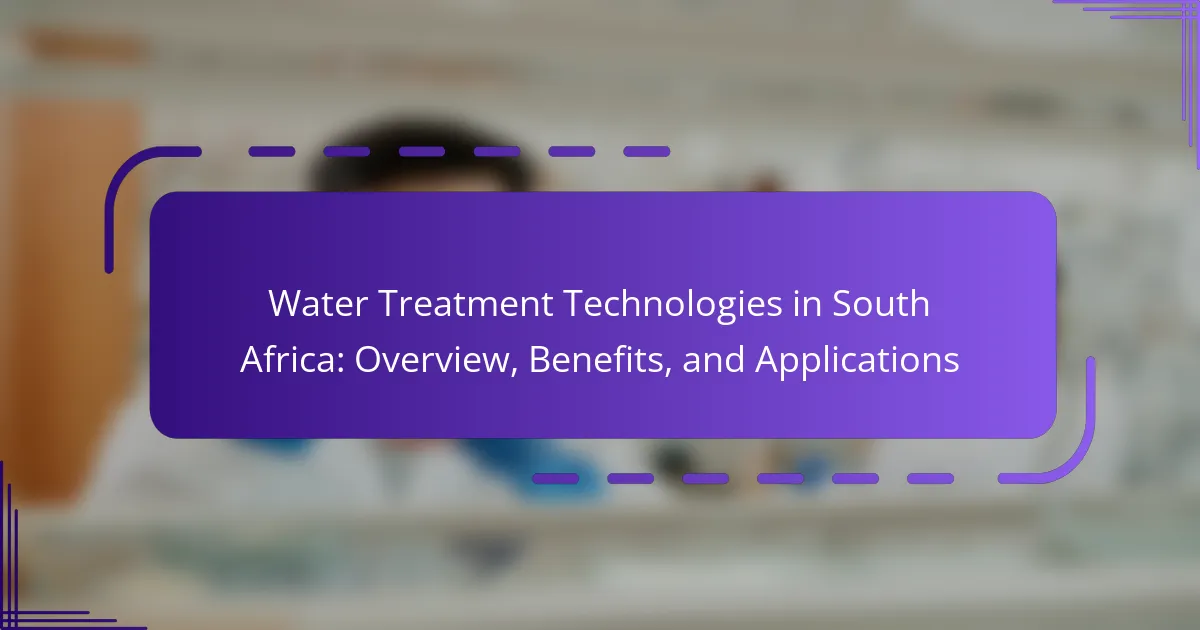Water treatment technologies in South Africa encompass various methods for purifying water to address challenges such as water scarcity and contamination. Key technologies include reverse osmosis, filtration, and disinfection methods like chlorination and UV treatment, all crucial for ensuring safe drinking water. These technologies not only improve water quality but also play a significant role […]
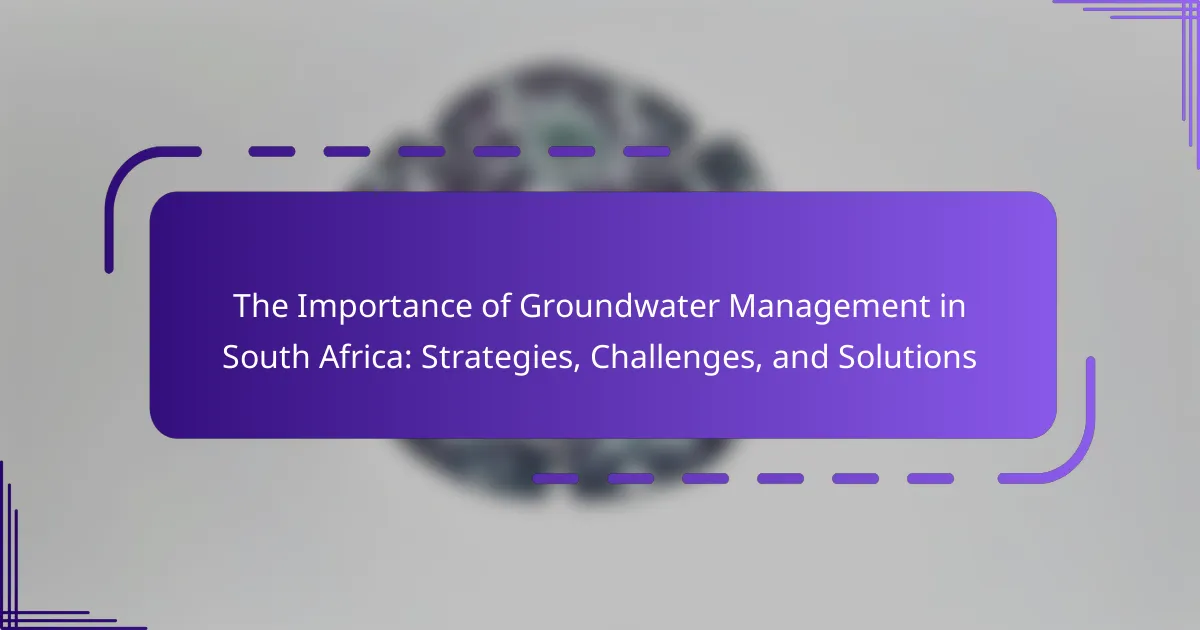
The Importance of Groundwater Management in South Africa: Strategies, Challenges, and Solutions
Groundwater management in South Africa is essential due to the country’s reliance on this resource, which constitutes approximately 60% of its water supply. Effective management practices are necessary to ensure sustainable access for agriculture, drinking water, and industrial use, while also preserving ecosystems. Current challenges include over-extraction, pollution from mining and agricultural activities, and inadequate […]
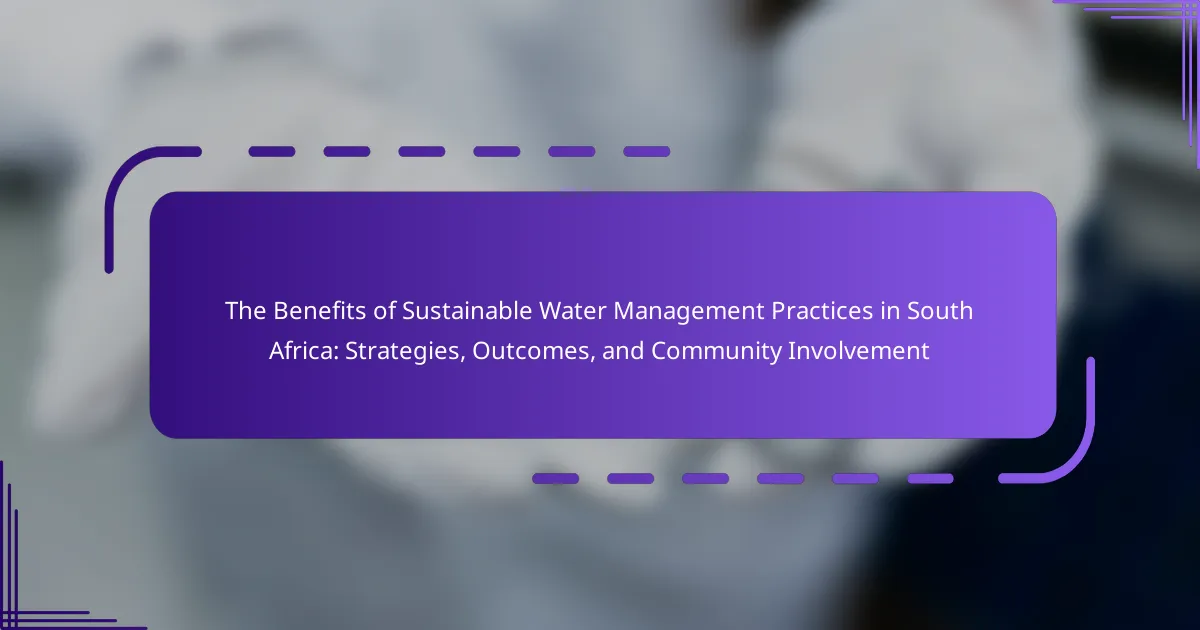
The Benefits of Sustainable Water Management Practices in South Africa: Strategies, Outcomes, and Community Involvement
Sustainable water management practices in South Africa focus on enhancing water availability and quality while reducing wastage and promoting efficient usage. Key strategies include integrated water resource management (IWRM), rainwater harvesting, and wastewater recycling, all aimed at addressing water scarcity challenges. These practices not only support ecosystem health and preserve biodiversity but also empower local […]
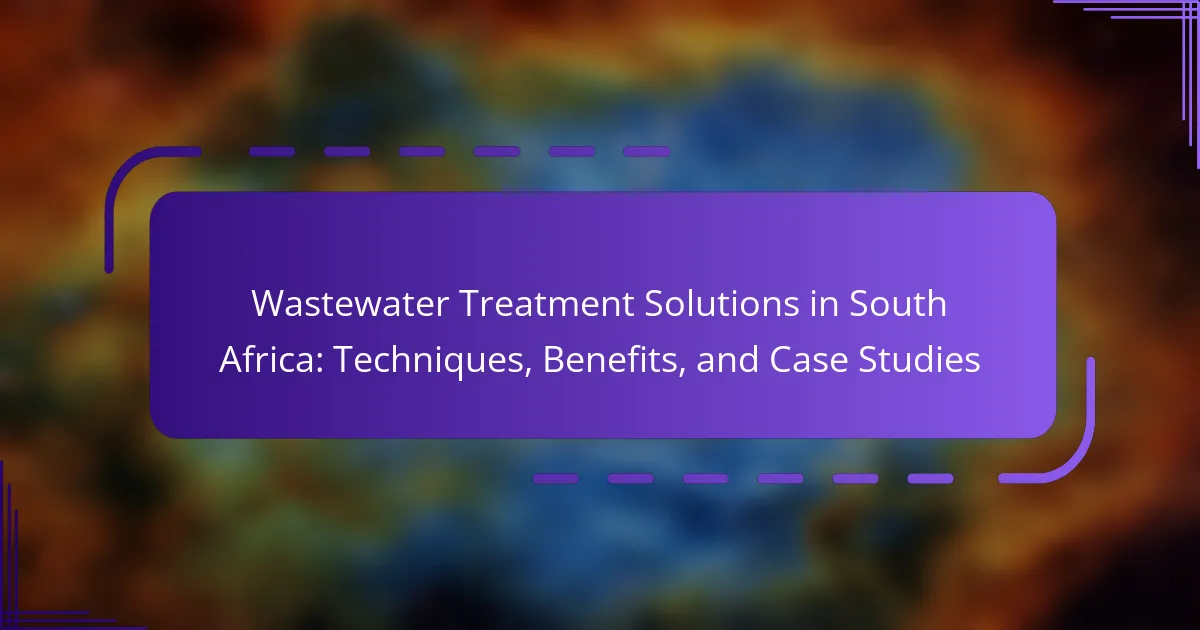
Wastewater Treatment Solutions in South Africa: Techniques, Benefits, and Case Studies
Wastewater treatment solutions in South Africa encompass a range of methods designed to manage sewage and industrial wastewater, focusing on contaminant removal to produce clean water for reuse or safe discharge. Key techniques include biological treatment, such as activated sludge systems and biofilters; chemical treatment, involving coagulation and disinfection; and physical treatment methods like sedimentation […]
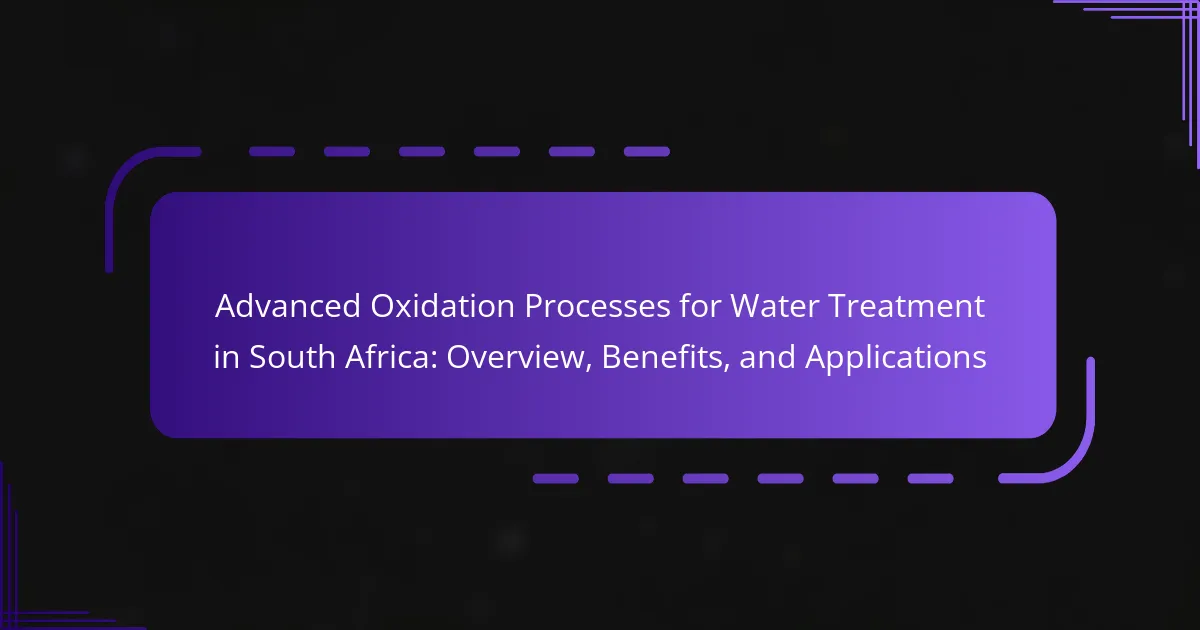
Advanced Oxidation Processes for Water Treatment in South Africa: Overview, Benefits, and Applications
Advanced Oxidation Processes (AOPs) are innovative water treatment technologies that utilize strong oxidants, such as ozone and hydrogen peroxide, to effectively remove contaminants from water through the generation of hydroxyl radicals. AOPs have demonstrated high removal rates for various pollutants, making them particularly suitable for treating wastewater and industrial effluents. However, the implementation of AOPs […]
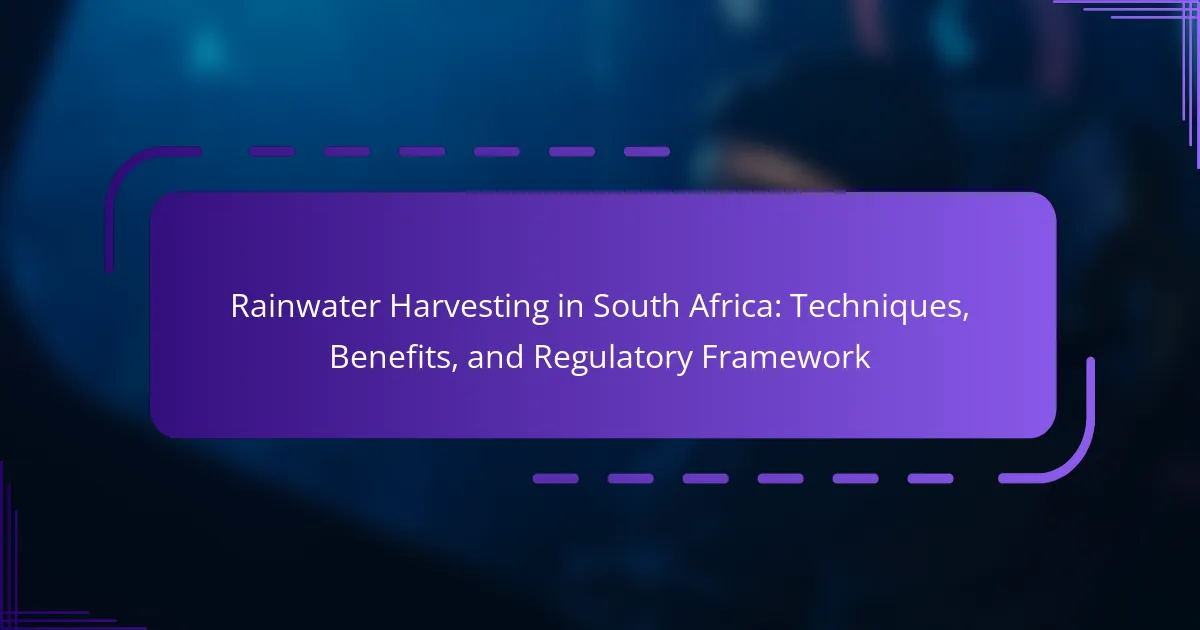
Rainwater Harvesting in South Africa: Techniques, Benefits, and Regulatory Framework
Rainwater harvesting is the process of collecting and storing rainwater for future use, a practice increasingly vital in South Africa due to water scarcity. This method involves capturing rainwater from rooftops and surfaces, directing it into storage tanks for various applications, including irrigation, toilet flushing, and, after treatment, drinking. The benefits of rainwater harvesting include […]
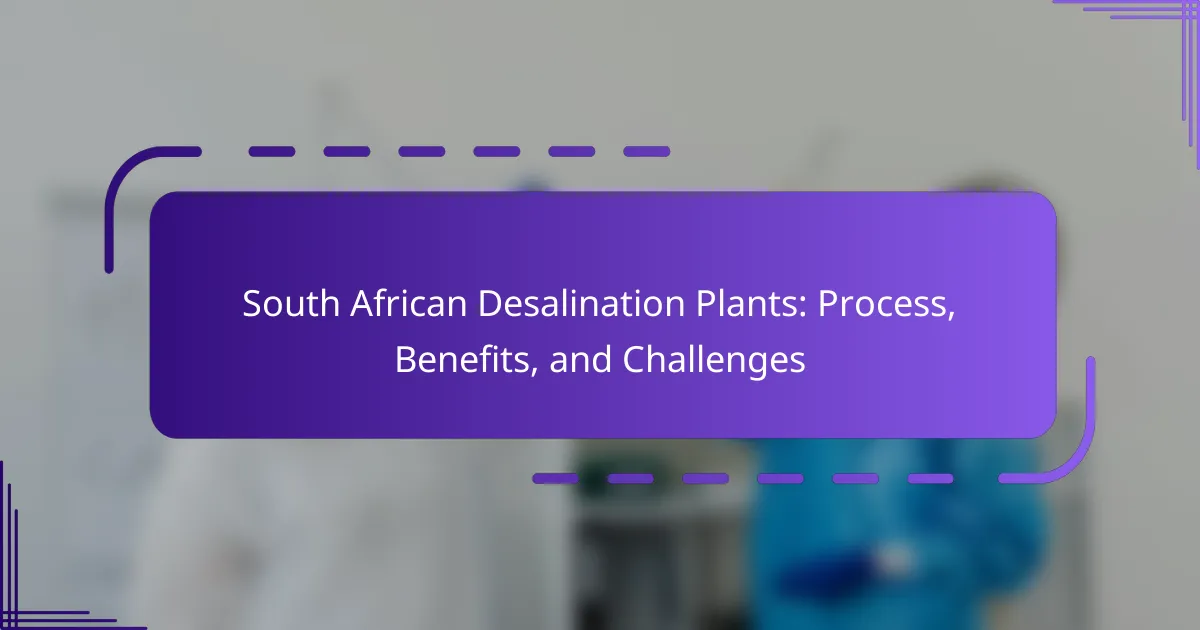
South African Desalination Plants: Process, Benefits, and Challenges
South African desalination plants are facilities designed to convert seawater into potable water, addressing the pressing issue of water scarcity in coastal regions. Utilizing technologies such as reverse osmosis, these plants are crucial for providing a reliable source of drinking water, particularly in urban areas like Cape Town and Durban. While they offer significant benefits, […]
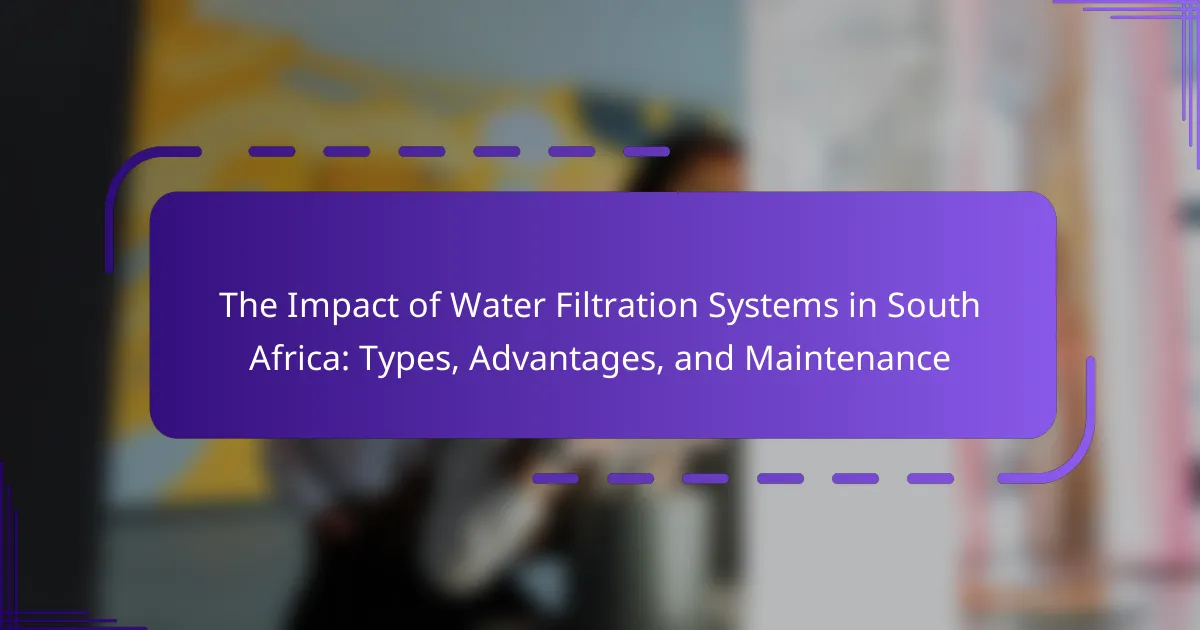
The Impact of Water Filtration Systems in South Africa: Types, Advantages, and Maintenance
Water filtration systems are essential devices that remove impurities and contaminants from drinking water, significantly impacting public health in South Africa. These systems address prevalent water quality issues, including pollution and pathogens, by improving water safety and taste. They offer numerous advantages to households, such as reducing health risks associated with contaminated water, enhancing palatability, […]
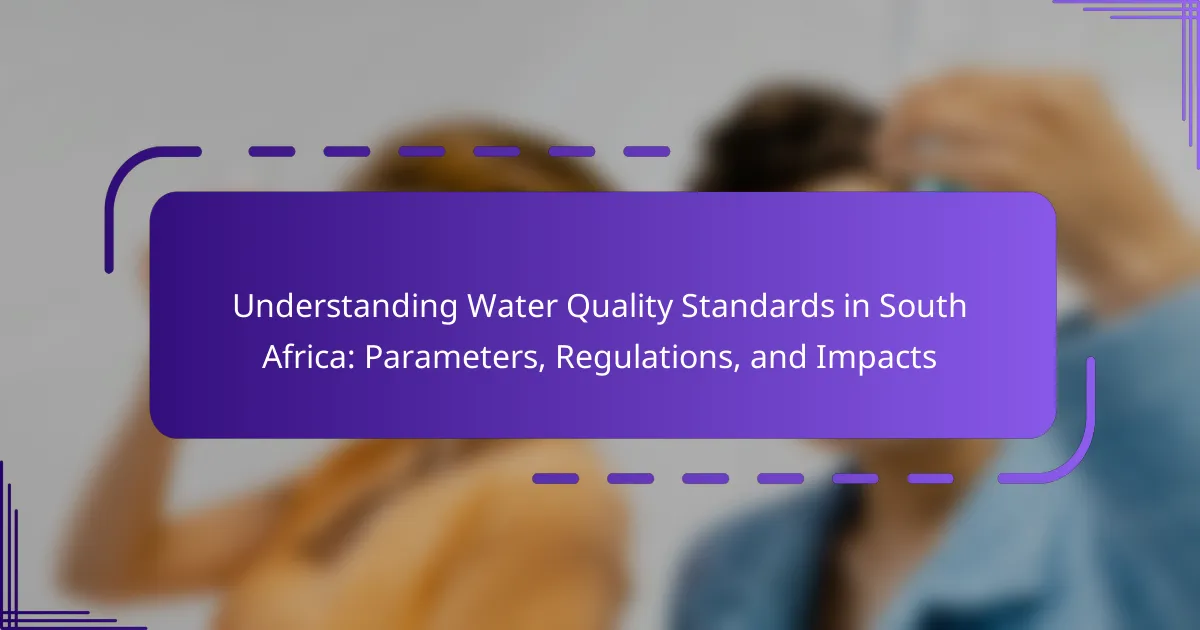
Understanding Water Quality Standards in South Africa: Parameters, Regulations, and Impacts
Water Quality Standards in South Africa are regulatory benchmarks that set acceptable limits for various water quality parameters, ensuring the safety of water for human consumption, aquatic life, and recreational activities. Established by the South African National Water Act of 1998, these standards encompass physical, chemical, and biological indicators such as pH, dissolved oxygen, and […]
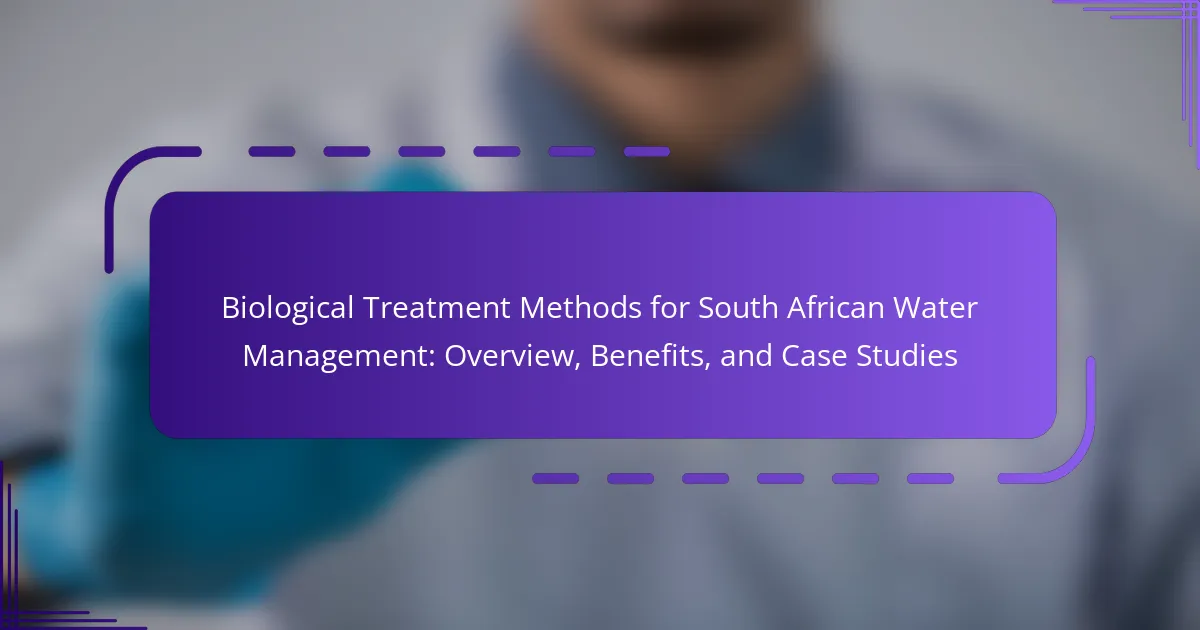
Biological Treatment Methods for South African Water Management: Overview, Benefits, and Case Studies
Biological treatment methods in South African water management involve the use of living organisms to treat wastewater and enhance water quality. Key processes include activated sludge, biofiltration, and constructed wetlands, which effectively reduce pollutants such as biochemical oxygen demand (BOD) and total suspended solids (TSS). These methods are applied in various sectors, including wastewater treatment, […]
